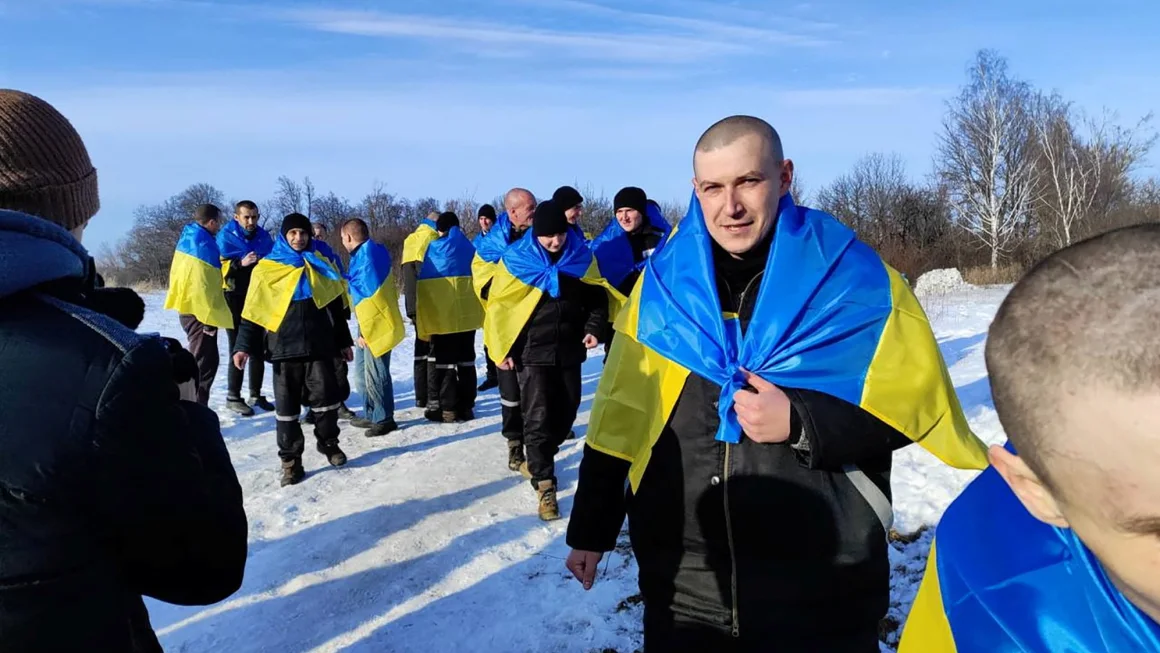In a notable development amidst ongoing hostilities, Russia and Ukraine conducted a significant prisoner exchange, marking the first such event following the enigmatic crash of a Russian military aircraft. The incident, which raised eyebrows on both sides, involved a Russian IL-76 plane that Moscow alleged was transporting 65 Ukrainian prisoners of war when it went down. This exchange saw the return of hundreds of service members to their home countries, signalling a rare moment of cooperation in a conflict marked by relentless confrontation and tragedy.
Ukrainian President Volodymyr Zelensky announced the repatriation of 207 Ukrainian service members, highlighting that nearly half of them were brave defenders of the beleaguered city of Mariupol. Zelensky’s words, “Ours are at home. 207 guys,” resonate with a nation yearning for the safe return of its heroes. The Ukrainian leader emphasized the ongoing efforts to bring back every captured soldier, stating, “We will do everything to return every one of them. We have not forgotten about anyone. We are looking for every single name.”
Conversely, the Russian Defense Ministry confirmed the recovery of 195 Russian military personnel, underscoring the scale and significance of this exchange. The backdrop to this event was the mysterious crash of the Russian IL-76 in the Belgorod region, which added layers of complexity and speculation to the already tense relations between the two nations. Russia’s claim that the plane was ferrying Ukrainian POWs contrasted with Kyiv’s assertion that it was laden with missiles intended for strikes on Ukraine.
The intricacies of this exchange were further complicated by discrepancies in the accounts of the plane’s cargo and the fate of the soldiers purportedly on board. Ukrainian intelligence and officials have raised doubts about Russia’s narrative, pointing to inconsistencies and a lack of evidence regarding the soldiers’ demise in the crash. The absence of the 65 Ukrainian POWs, previously listed by Russian media as casualties of the IL-76 crash, from the group of released prisoners added to the skepticism surrounding Russia’s claims.
Amidst these tensions, Russian President Vladimir Putin made a bold accusation, attributing the downing of the IL-76 to a US Patriot missile system. This claim adds an international dimension to the incident. Despite this, Putin assured Russia remains open to further prisoner exchanges, emphasizing the importance of retrieving Russian personnel.
This recent prisoner swap, described by Andriy Yermak, head of Zelensky’s office, as “the second major exchange after a long break,” brought home defenders from various hotspots across the conflict zone, including the Azovstal steel plant and Snake Island. Russia’s Defence Ministry states that the returned Russian soldiers are set to undergo treatment and rehabilitation in Moscow.
This prisoner exchange, against the backdrop of a tragic and disputed plane crash, underscores the complex dynamics of the Russia-Ukraine conflict. It highlights the ongoing human cost of the war and the glimmers of cooperation that emerge even in the darkest times. As both nations navigate the treacherous waters of conflict, the international community watches closely, hoping for resolutions that bring peace and stability to the region.







